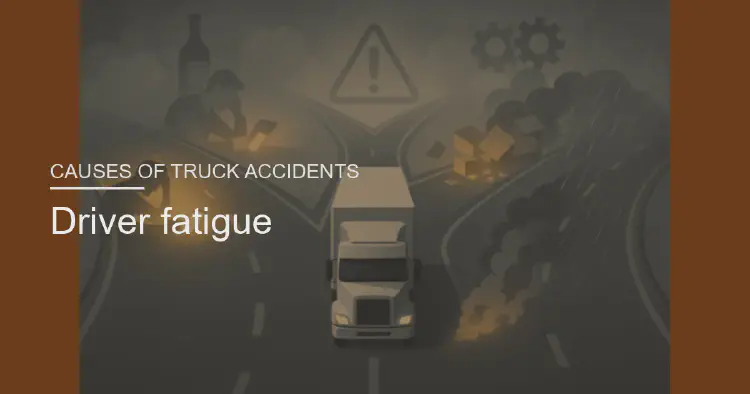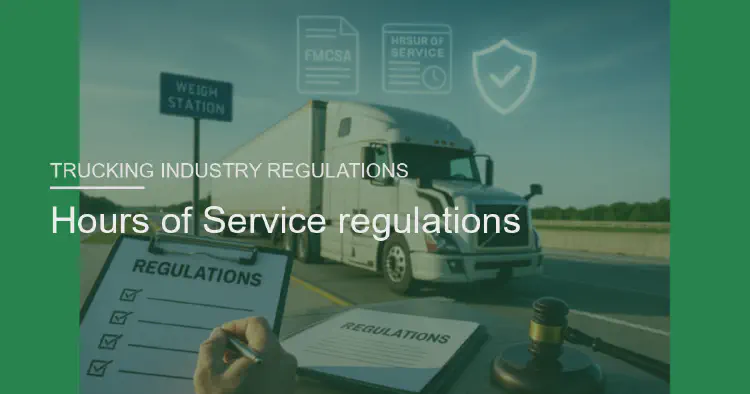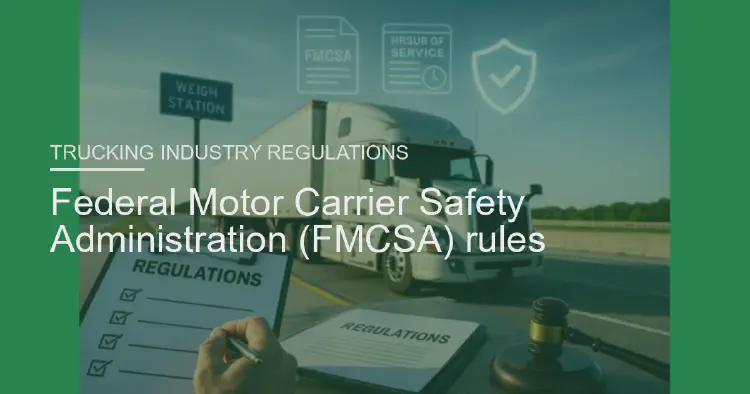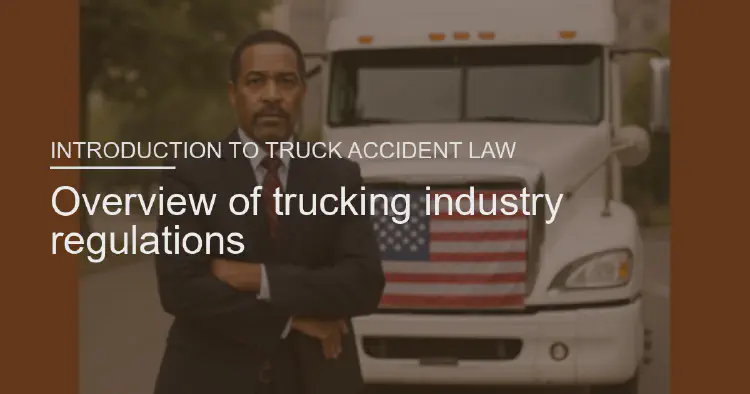
Truck driver liability
Truck drivers are the individuals directly operating commercial vehicles, and their actions are often the first factor examined when determining liability after a crash.

Truck drivers are the individuals directly operating commercial vehicles, and their actions are often the first factor examined when determining liability after a crash.

Fatigue is one of the leading human factors in truck accidents. Long hours on the road, demanding schedules, and insufficient rest put truck drivers at high risk of exhaustion, which can have deadly consequences.

Driver fatigue is one of the leading causes of truck accidents in the United States. To address this, the FMCSA enforces strict Hours of Service (HOS) regulations that dictate how long truck drivers can be on the road before resting.

The Federal Motor Carrier Safety Administration (FMCSA) is the central authority for trucking regulation in the United States. Its rules are designed to reduce crashes, injuries, and fatalities involving large commercial vehicles.

The trucking industry in the United States is one of the most heavily regulated sectors of transportation. These regulations exist to protect public safety and establish clear standards for drivers, companies, and vehicles.

Truck accident cases in the United States operate within a dual legal framework shaped by both federal and state laws. Understanding how these layers interact is essential for determining liability and compliance.